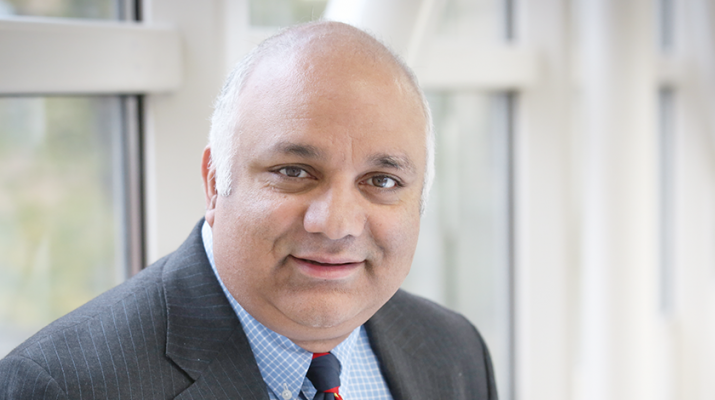By Ernst Lamothe Jr.
Problems with your prostate, reproductive system, bladder or kidneys are often both physically and emotionally difficult. Urologists specialize in providing advanced, minimally invasive treatments for a wide range of urologic conditions, including prostate cancer, bladder cancer, urinary tract infection and erectile dysfunction. Physician Khurshid Guru is vice chairman of the department of urology and director of robotic surgery at the Roswell Park Cancer Institute in Buffalo. He was one of the early fellowship-trained robotic surgeons and has performed more than 1,500 robot-assisted procedures. He offers five tips for optimal urological health.
“With every piece of advice, the first thing I tell my patient is you have to be your own advocate,” Said Guru. “The best patients are well-educated patients. You have to feel empowered to ask all the questions you need. And if you can’t be an advocate for yourself because of whatever reason make sure you have one.”
1. Stop smoking or avoid smoking
By now, we all know the information about smoking being bad for individuals and the overall population. And while the statistics are encouraging with the number of young smokers dropping annually, issues persist because other elements have filled in the void of tobacco. With e-cigarettes and other supposed “smoke free” replacements to traditional nicotine smoking, many people have replaced a bad habit with just another replacement.
“Smoking is one of the leading causes of bladder cancer and also can lead to lung issues,” said Guru. “We understand it is not easy for people to completely stop so we have smoking cessation programs at Roswell to help people quit.”
2. Hydrate
Guru suggests that people drink eight glasses of water and that includes eating fruits, which sometimes are 80 percent water. Drinking water has been known to lower your risk of stone disease. Stone disease is a painful and common condition that affects more than 5 percent of all adults in the U.S., according to the National Kidney Foundation. It’s estimated that nearly 2 million patients visit their doctors or local emergency rooms because of kidney stones every year.
“I tell people you should get a bottle of water and fill it up in the morning and continue to do that throughout the day,” said Guru. “Being hydrated is one of the easiest and more effective ways to overall good health.”
3. Stay moving
Exercising at any age is essential to good health. It becomes even more paramount as you get older because you are fighting the uphill battle of aging. Guru recommends regular exercise even as simple as taking regular walks.
When it comes to your body, keeping active is essential as we age. Even 20 minutes of activity a day, three times per week, provides benefits. Thirty minutes every day is even better.
“When you keep up your cardiovascular energy it does have positive effects for your body. It can be as simple as taking a walk and that could make an incredible difference,” said Guru.
4. Pay attention
The simple observations make the biggest difference.
“You don’t have to be dealing with incredible pain for something to be wrong,” said Guru. “For example, if you see fresh blood in your urine, you should immediately consult your primary care physician. A lot of times small signs like that can be the first step to something being wrong. Sometimes people have more advanced stages of cancer because they didn’t care to pay attention to the symptoms.
5. Let technology be your friend
There are different types of urinary incontinence in men, including stress incontinence, urge incontinence and overflow incontinence. Some men may have one, two, or all three types of incontinence Diagnosis of urinary incontinence in men will involve a medical history and physical exam, and may include keeping a bladder diary. But if keeping a written diary is too old school for you there are new ways to keep track. “We have the ability to use so much technology and that is why I have created two apps that help people navigate and stay on top of their health concerns,” said Guru. “Not everyone wants to keep a journal dairy and because our phones are always with us it is easy access to making sure we track the important things we need to for our health.”

